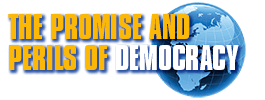Recent weeks saw daily protests in Thailand aimed at the country’s monarchy and, more specifically, King Maha Vajiralongkorn who formally assumed the throne in 2016. There has been long-standing criticism against Vajiralongkorn and his lavish lifestyle. Since the military coup in 2014, the monarchy has been even more closely linked to the military, a relationship that has strengthened since the ascension of Vajiralongkorn to the throne.
Thailand has strict laws that outlaw criticism of the royal family. Since the military took over in 2014, these laws have been extended to include comments and likes on social media. Over the last few weeks, Facebook, Twitter and YouToube have all been ordered by the Thai government to take down “inappropriate” posts criticizing the country’s monarchy. On Monday, Facebook started preventing users in Thailand from accessing an anti-royalist group. The company has since announced that it would seek legal action against the order from the Thai government.
The protests in Thailand go beyond criticizing the king and his close link to the military. In demonstrations that have been described as a “new turning point” mostly young activists demand broader democratic reforms to the country’s authoritarian order.
Thailand is deemed “Partly Free” by Freedom House, a non-governmental pro-democracy watchdog organization. It was upgraded from its 2019 ranking of “not free” because of the parliamentary elections the country held in March 2019. Despite this upgrade, political rights and civil liberties remain severely restricted in Thailand.
